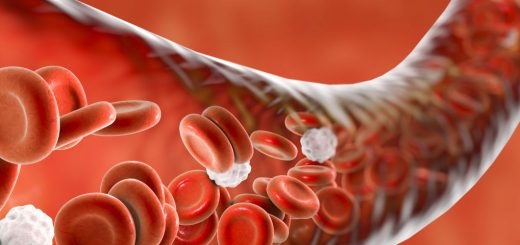Everything You Need To Know About Dementia In 2022
Distinguishing the symptoms of dementia from the natural effects of aging is often a real challenge for families, especially when the person is trying to hide the disease. Dementia is frightening for the person with dementia because it affects the brain and changes the personality. No one wants the disease to steal their identity.
This is why denial is common among many seniors with dementia, who try to hide their symptoms from their loved ones. So, without further ado, let’s dive into this blog and learn some of the things everyone needs to know about dementia.
There are 5 main types of dementia

As we age, the brain undergoes significant changes. For example, after the age of 60, it begins to shrink slowly. Cardiovascular disease and head trauma can also significantly impact the brain, sometimes leading to dementia. A person’s family history also influences the onset of this syndrome.
Dementia is an important sign of progressive neurodegeneration involving the death of certain brain cells and the loss of tissue. The functions most frequently affected are memory, thinking ability, behavior, and the ability to perform daily tasks in the sufferer.
1. Alzheimer’s disease
Probably the most well-known and common type of dementia, Alzheimer’s, is the result of an abnormal shrinking of the brain. It affects all brain functions and causes significant changes, especially in behavior and interpersonal relationships. The first signs of the disease are difficulty remembering, for example, the day, the place or recent events, or depressive behavior.
2. Lewy body dementia
Similar to Alzheimer’s, this type of dementia also has Parkinson’s-like features, such as tremors and stiffness. Sleep disorders and visual hallucinations accompany it.
3. Vascular dementia

Each stroke results in brain damage and tissue loss. Thus, symptoms similar to Alzheimer’s may appear after several small strokes, including memory problems, poor decision-making, and difficulty planning.
4. Frontotemporal dementia
In this case, neurodegeneration affects the frontal and temporal lobes more than the rest, resulting in significant changes in behavior and personality. The affected person may also have language problems, difficulty moving around, and memory loss. The first symptoms appear earlier than those of Alzheimer’s disease, around the age of 60.
5. Mixed dementia
This is a situation where the person is affected by two types of dementia. The most common combination is Alzheimer’s and vascular dementia.
Memory problems or dementia?
In short, dementia, regardless of the type, is characterized by different symptoms such as memory loss, learning difficulties, language problems, confusion, mood and personality changes, poor decisions, difficulty reasoning, depression, loss of interest in certain activities, etc.
Therefore, memory problems alone should not be used to determine if a loved one has Alzheimer’s disease or another type of dementia. In fact, cognitive problems related to memory may have other causes, including the interaction of medications, alcohol use, depression, thyroid problems, or vitamin deficiency.
If you suspect that a loved one has Alzheimer’s, dementia, or one of the 5 major types of dementia, it is best to consult a doctor who specializes in geriatrics, for example. Tell the doctor about the behaviors and problems that seem to be affecting the person so that the doctor can determine whether or not it is dementia and what type. He or she can then refer you to appropriate treatments or approaches.
Causes

Dementia is the result of damage to brain cells that prevents brain cells from communicating with each other. When brain cells cannot communicate normally, it can affect thinking, behavior, and feelings. The brain has many distinct regions, each of which is responsible for different functions (for example, memory, judgment, and movement). When cells are damaged in a specific area, that area can no longer perform its functions normally.
Different forms of dementia are associated with damage to certain brain cells in certain areas of the brain. For example, in Alzheimer’s disease, high levels of certain proteins inside and outside the brain cells prevent the cells from remaining healthy and communicating with each other. The area of the brain called the hippocampus is the center of learning and memory in the brain, and the cells in this area are often the first to be damaged.
For this reason, memory problems are often among the first symptoms of Alzheimer’s disease. While most of the changes in the brain that cause dementia are permanent and get worse over time, memory and thinking problems caused by the following conditions can improve when treated:
- Depression
- Side effects of certain medications
- Excessive alcohol consumption
- Thyroid problems
Sound off in the comments section below, and tell us what you want to read next and if you want to read more about dementia.




2 Responses
[…] report any abnormal symptoms: discomfort, pain, tightness, shortness of breath, severe fatigue, abnormal heartbeat, etc. Normally, the test should continue until muscle exhaustion leads to the cessation of the […]
[…] Sound off in the comments section below, and tell us what you want to read next and if you want to read more about anxiety. […]